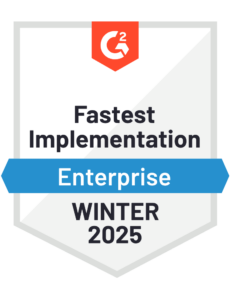Top Strategies to Make the Financial Close Stress-Free for Your Team
Blog post
Share
Unsurprisingly, the financial close is one of the most stressful periods for an accounting team. With increasing pressure for more timely and accurate financial statements, the demands can quickly outpace the team’s capacity to thrive. Even the world’s best juggler has a limit to how many chainsaws they can handle before things get… messy.
But here’s the good news: your team doesn’t have to face the financial close with dread. With the right strategies, you can keep everyone on track and maintain their well-being.
1. Start Strong: Foster Collaboration and Transparency
There’s no “I” in “team,” and this holds especially true during the financial close. Efficiency stems from unity—a shared vision of success paired with a clear roadmap to achieve it. From day one, ensure everyone knows the goals, understands their roles, and sees how their contributions fit into the bigger picture.
This clarity fosters autonomy, ownership, and a sense of purpose. Team members who feel engaged are more likely to deliver exceptional results. The right collaboration tools can further streamline workflows, ensuring everyone stays aligned and workloads remain manageable.
2. Prioritize Healthy Habits
Under pressure, it’s easy for healthy habits to fall by the wayside. Yet these habits are essential for reducing stress and maintaining productivity. Team leaders should lead by example—taking breaks, setting boundaries, and encouraging others to prioritize their well-being. When your team has the tools to work efficiently, they can leave the office on time and focus on a better work/life balance.
At Trintech, our mission is to give people time back for what matters most. We help accounting & finance teams make the most of their time by eliminating manual burdens with innovative month-end close software solutions.
3. Lighten the Load to Combat Burnout
Heavy workloads are a leading cause of burnout, with 74% of accountants leaving the industry citing poor work-life balance as the primary reason. Burnout doesn’t just impact individuals—it affects the entire team, often leading to:
- Chronic exhaustion or illness
- A sense of alienation or underappreciation
- Reduced quality of work or disengagement
As businesses grow, so do complexities in data, compliance, and reporting. Unfortunately, the talent pool isn’t expanding at the same rate. To ease this burden, consider automating repetitive, time-consuming tasks—freeing up your team to focus on meaningful, high-value work that drives satisfaction and results.
4. Embrace Automation for a Stress-Free Close
Automation is the game-changer your team needs. By handling redundant processes such as transaction matching and balance sheet reconciliations, automation delivers:
- Consistently reliable outcomes
- Streamlined workflows that enhance efficiency
- Significant time savings, enabling higher-level contributions
When accountants are freed from mundane tasks, they can apply their expertise to strategic decision-making and analytical insights. Not only does this elevate their engagement and productivity, but it also transforms the Office of Finance into a true engine for organizational growth.
A Healthier, More Productive Future for Finance
Let’s face it: accounting can sometimes feel like a thankless job. But by empowering your team with the right tools, strategies, and support, you can turn the financial close from a stress-inducing chore into an opportunity for growth and success.
The Office of Finance shouldn’t be a bottleneck—it should be a platform for innovation and progress. By proactively addressing the challenges of the financial close, your team will be better equipped to thrive in today’s fast-paced, complex business landscape.
Check out our related blogs:
Automate Your Way to Work-Life Balance
Blog 1 of 3
Your Software is Your Selling Point
Blog 3 of 3






